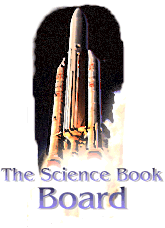![]()
 |
|
|
|
If you wish to purchase further titles already reviewed here, please return each time to SBB. Using the direct links available at our site is easier than searching by title, author, or ISBN number.
EDITORIAL INFORMATION Slightly more than a half century ago the first tentative explorations into space learned that it was an environment in which the United States could conduct operations of benefit to the nation and its people. With the end of the Cold War between the United States and the Soviet Union in the 1990's, advocates of an aggressive space exploration program face a problem similar to what they encountered at the end of World War II. Then, as now, makers of space policy have been wrestling with the definition of a space program that does not have a strong defense component aimed at a large, powerful, and determined rival. Because of the timely nature of space policy formulation for the United States at the end of the twentieth century, the History Committee of the American Astronautical Society organized a session at the November 1993 meeting to address the issues of formulations of space policy in earlier eras. Five presentations, as well as additional perspectives added thereafter, have been consolidated into this publication for the benefit of a wider audience than those present at the annual meeting. (Extrated from the Preface, by Roger D. Launius, editor).
GENERAL TABLE OF CONTENTS
OUR REVIEW The eighteenth volume of the AAS History Series is devoted in this case to an important aspect of the history of astronautics. When reviewing essential episodes of this history, I have always wondered why ever the powers that be took such or such decision, decisions that afterwards shaped in a given way the future of the programs which were undertaken by the different agencies, both in the civilian and the military fields. And this book provides us with the answer-at least in part. Many are the elements that intervene in the decision-making process in such a strategic area as astronautics is. It is not then strange to prove that it often is politics, military priorities or economical availability, the most intermixed concepts in such procedures, much more that even science or technological progress. NASA's History Office Chief Historian Roger D. Launius is the one in charge of compiling for us the lectures that were given during one of the conferences celebrated by the American Astronautical Society. Launius himself participates with a paper of his in the selection, a privileged collection of articles written by the most important figures of the US historical school. We can therefore expect from them scholarship, historical precision an a wide vision of the phenomenon thus described. With the gradual withdrawal or disappearance of the men who lived the most brilliant and decisive times of world astronautics firsthand, such enterprises as this one become not only essential but also worthy of praise, since the moulding of this important amount of data, still rich in shades of meaning and purpose, into words, is a legacy that will remain for our children. |
|||
![]()
Main Page | What's New | Reviews | Indexes | Links